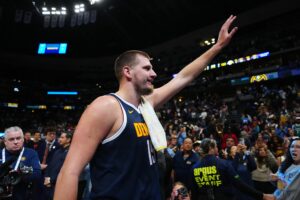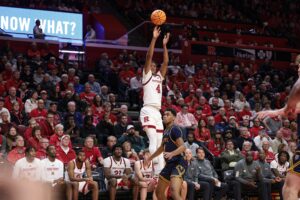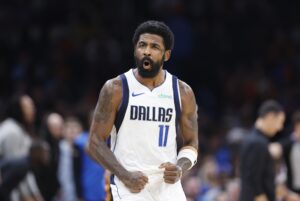Two years ago, there were 25 NBA teams that had at least $10 million in cap space on July 1. This summer, there will be just seven, as of now. That can change due to draft day moves, but nonetheless, the contrast is stark. Those seven teams, plus a few others, are in a prime position to pick up some assets. With many bad contracts floating around the league, opportunities for GM’s to be creative are present.
NBA Teams Should Take on Bad Contracts
No, I’m not talking about signing free agents. After all, do you really think any free agents are dying to sign with the Brooklyn Nets? More than ever before, superstars choose a destination based on the team’s other stars and the organization’s competence, and the combination of Spencer Dinwiddie and Mikhail Prokhorov isn’t exactly Dwyane Wade, Chris Bosh, and Pat Riley.
What the Brooklyn Nets can do, though, is parlay their room into assets in the manner that Sam Presti popularized. Presti famously used a trade exception to take on Kurt Thomas’ contract from the Phoenix Suns. In return, Presti picked up two first-round picks from the Robert Sarver-led, penny-pinching Suns.
While these moves don’t make the biggest headlines, they can be huge for long-term team building. Danny Ainge and the Boston Celtics got a first rounder and Tyler Zeller to pick up Marcus Thornton’s salary, as the Cleveland Cavaliers had to clear cap space to re-sign LeBron James. Ainge used that first-rounder seven months later to acquire Isaiah Thomas, and we all know what happened from there.
Which Teams are Possibilities?
Of the teams with significant cap space this summer, only the Los Angeles Lakers and Philadelphia 76ers should have serious aspirations about signing big-time free agents in July.
That leaves the Dallas Mavericks, Chicago Bulls, Atlanta Hawks, Phoenix Suns, and the aforementioned Nets. Take the Mavs, for example. They’re bottoming out now, but they still have to pay Wesley Matthews through next year, and Harrison Barnes and Dwight Powell have player options that would take them to June 2020. Dallas already has over $35 million committed to the 2019-2020 season, and it’s unlikely they’d be good by that point, anyway. Why not try to take on Luol Deng’s or Evan Turner’s contract that both run through 2020?
Summer of 2020 will be important because the worst contracts of 2016 will expire at that time. Over the next two years, there will be numerous teams trying to unload players whose deals run through 2020. If your team has some bad money signed through then, anyway, why not look to take on dead money? Even if a team– such as the Nets, who will finally have their own pick in 2019 – wanted to tank in the next two years, it’s always possible to take on a player and then buy him out. If anyone takes on Joakim Noah’s deal, they’ll start talking buyout before he flies in for his post-trade physical.
It’s not just the teams with cap space who could take on dead money, though. The Los Angeles Clippers have Danilo Gallinari signed through 2020, unfortunately for them. It’s hard to envision the Clippers becoming a contender again in the next two years, so why not trade a contract that expires in 2019 (Tobias Harris, Milos Teodosic, Wesley Johnson, Patrick Beverley) for a contract that expires in 2020?
Steve Ballmer, the owner of the Clippers, seems to be intent on never tanking, limiting Jerry West’s options on how to improve. If West takes on a deal like Turner’s, which expires in 2020, he can appease Ballmer. Turner is just barely good enough that such a trade wouldn’t be tanking.
Another interesting case is the Charlotte Hornets, who have a ton of bad money on the books. Dwight Howard’s contract expires in 2019, but Marvin Williams and Michael Kidd-Gilchrist are on deals that run through the 2020 season. These deals will cost the Hornets $28 million in their last year. Oh yeah, and Nicolas Batum and Cody Zeller will earn a whopping $42.5 million in 2020-2021. The Hornets are locked in, so they might as well pick up some assets while being locked in, right?
NBA general managers should be studying the past successes of Sam Presti and Danny Ainge. If they’re not, they’re missing out on a prime opportunity to acquire some franchise building blocks.
Main Photo:






